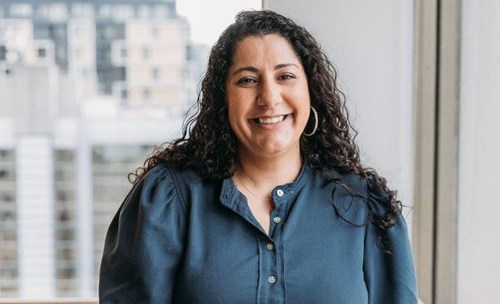How to Negotiate a Fair Property Settlement Agreement

Negotiating a property settlement is a significant step in moving forward after a separation or divorce. It's essential to approach the negotiations with clarity, patience, and a focus on finding a fair and equitable solution. In this blog, we explore some of the key points to keep top of mind when working through property settlement with your former partner.
Get advice from a family lawyer early
Engaging a lawyer experienced in family law (and particularly in property settlement) is crucially important.
Getting advice early means:
- you will be well informed about your rights and entitlements;
- you will better understand what is actually achievable;
- you will have had the opportunity to work out your goals; and
- you will avoid making costly mistakes like agreeing to something that is against your interests or taking a position that is unreasonable from the start.
A family lawyer can also give you advice about whether any agreement reached between you and your ex is likely to meet the Court’s requirement of “just and equitable”. Your lawyer can also identify any potential issues or concerns and advise you on the best course of action.
Together with engaging an experienced family lawyer, it may also be important to get financial and taxation advice. If you want to keep any property (for example, the family home), you should also get advice from your lender or a broker to determine your borrowing capacity.
Understand the legal framework
In order to progress your property settlement negotiations, it is important to understand how assets may be divided after separation.
The following approach is commonly adopted when looking at how property should be divided.
- First, the law looks at whether it is just and equitable to make any property adjustment orders. The answer here is usually yes.
- Second, we need to determine the current value of the assets, liabilities (debts like car loans, credit cards, mortgage etc), and financial resources of the relationship.
- Next, we assess each party’s contributions to the property pool (e.g., perhaps one party received an inheritance or owned the family home prior to the commencement of the relationship).
- Then we look at whether either party might be entitled to an adjustment in their favour as a result of ‘future needs’ factors (e.g., one party may have primary care of young children and be unable to work in paid employment).
- Finally, we assess who should receive what and look at whether the overall settlement is just and equitable.
For more detailed information on dividing property after separation, you can read our previous article, “How are assets divided after separation and divorce."
Gather financial information and value your assets
Understanding your financial position and knowing the value of assets and liabilities/debts is important when negotiating a fair distribution.
Duty of disclosure is a legal requirement in property settlement negotiations. Both parties have an obligation to provide full and frank disclosure of their financial situation. Transparency generally assists in achieving a fair and equitable settlement. Failing to disclose relevant financial information can have serious consequences and may undermine the integrity of the negotiation process.
Some common documents required to meet your duty of disclosure include bank statements, tax returns, property valuations, superannuation statements, and any other relevant records that reflect your financial situation.
If you’re not sure what your disclosure obligations are, you should seek legal advice.
Focus on settlement rather than arguments
If you are having direct communications and negotiations with your former partner, be sure to focus on the end goal of reaching an agreement (amicably if at all possible) rather than getting stuck in an argument. Take time to listen, be respectful, keep an open mind and be ready to compromise.
Explore dispute resolution methods
If you and your former partner can't seem to agree, you may wish to consider dispute resolution methods such as mediation and collaborative law. These processes are typically more cost-effective and efficient than going to Court.
Mediation, in particular, is a popular option for many separating couples. It involves a neutral third party, known as a mediator, who facilitates discussions between you and your former partner. The mediator helps identify areas of agreement, clarifies misunderstandings, and assists in finding mutually acceptable solutions. Mediation allows you to maintain control over the decision-making process. But you also need to understand that it often requires some compromise to reach an agreement.
Collaborative law is another dispute resolution option commonly used in family law matters. In collaborative law, each party has their own specially trained collaborative lawyer, and all parties commit to resolving the dispute outside of court. Through a series of meetings, you and your former partner, along with your respective lawyers and other professionals, work together to find a settlement that meets the interests of all involved. Collaborative law focuses on cooperation and problem-solving rather than an adversarial approach.
It's important to note that alternative dispute resolution methods may not be suitable for all situations, particularly in cases where there is a significant power imbalance or a history of family violence. If you’re unsure if mediation is suitable due to family violence or a fear of family violence, you should seek urgent legal advice to ensure your safety and well-being.
Formalising your property settlement
Once an agreement is reached through negotiation, you need to make it legal.
This is generally done by way of property settlement consent orders or a financial agreement. You can read more details about the differences between these options in our earlier article, “Property settlement Consent Orders or a financial agreement”.
Some lawyers (like us) will offer fixed pricing for this service, and it’s generally a smooth process as long as the agreement is fair and equitable.
Get help from an experienced family lawyer
Remember, every family law case is unique, and these suggestions may not work for everyone.
At Emera Family Law, we understand the intricacies involved with property settlement and are dedicated to supporting you throughout the process. Take the first step towards resolving your property settlement by booking a free initial consultation.
Contacting Emera Family Law
Family Lawyers Melbourne
This article is of a general nature and should not be relied upon as legal advice. If you require further information, advice or assistance for your specific circumstances, please contact Emera Family Law.

